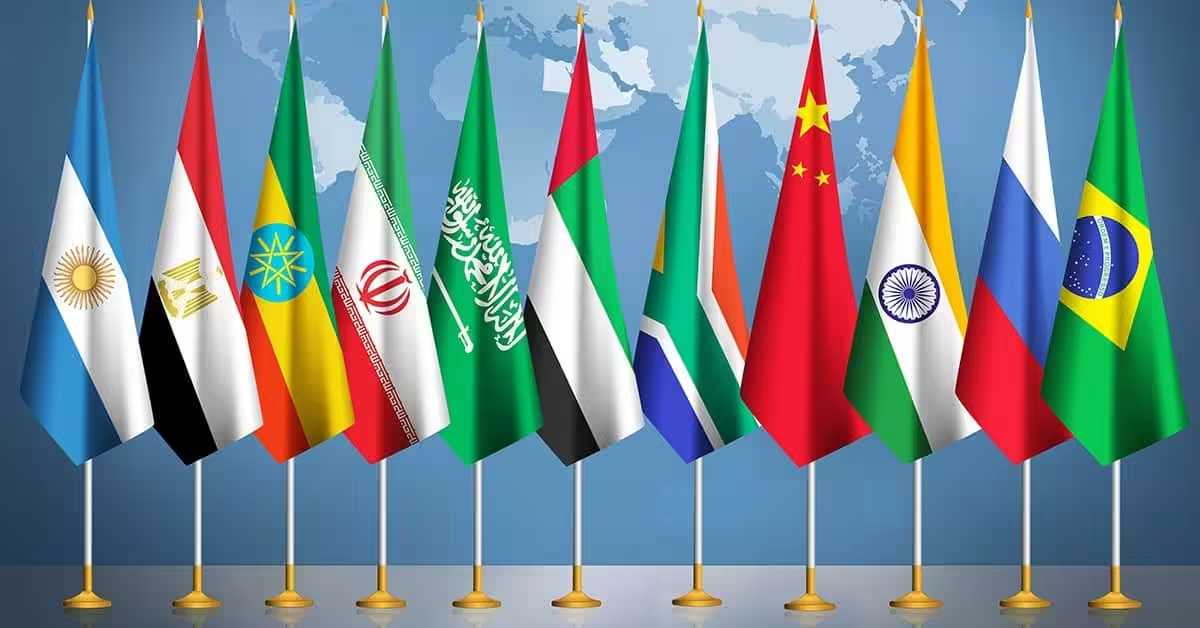|
Getting your Trinity Audio player ready...
|
October is shaping up to be a pivotal month for the BRICS alliance, with the highly anticipated 2024 Summit expected to bring significant changes. Among the top items on the agenda is the possible expansion of the bloc to include 20 nations. With the BRICS Pay system likely to be launched this month, the global stage is set for one of the most momentous summits in the group’s history.
BRICS’ Growing Influence And 2023 Expansion
Since 2022, the BRICS bloc (Brazil, Russia, India, China, and South Africa) has seen remarkable growth in its global influence. With initiatives aimed at reshaping the international economic order, the alliance has become a focal point for countries seeking alternatives to Western-led financial institutions. In 2023, BRICS made headlines by expanding its membership for the first time in over two decades, welcoming the United Arab Emirates (UAE), Egypt, Ethiopia, and Iran into the fold.
This expansion was viewed as a historic moment, signaling BRICS’ growing appeal as a counterbalance to Western economic dominance. Now, with the 2024 Summit just around the corner, speculation is rife that the group may soon grow even larger.
Could BRICS Welcome 11 More Nations in 2024?
New reports suggest that the BRICS alliance is preparing to welcome 11 additional nations to its ranks during the 2024 Summit. Saudi Arabia, a key player in global energy markets, is poised to officially join the bloc after accepting an invitation last year. Although it has yet to formalize its membership, that could change at this year’s summit, signaling a new era of cooperation between the Middle East and BRICS nations.
Additionally, the bloc is expected to establish a new category of membership with the introduction of BRICS Partner nations. These countries, while not full members, will engage with the alliance in strategic partnerships focused on economic cooperation and infrastructure development. Nations like Cuba, Venezuela, Malaysia, and Thailand have already expressed interest in joining BRICS as partner countries, reflecting the bloc’s growing global appeal.
BRICS Pay System: A New Era of Financial Integration?
The 2024 Summit is also expected to feature the long-awaited launch of the Brazil, Russia, India, China, and South Africa Pay system. This digital payment platform could revolutionize how member nations conduct trade, providing an alternative to Western-dominated financial systems. The introduction of BRICS Pay aligns with the bloc’s goals of reducing dependence on the U.S. dollar and fostering economic cooperation between member states.
This innovation, combined with the potential for further expansion, highlights BRICS’ ambition to play a more prominent role in shaping the future of the global economy.
A Shift in the Global Power Balance?
The expansion of BRICS to 20 nations, including both full members and partner countries, could signal a shift in the global power balance. As more countries seek to join the alliance, BRICS’ influence in international trade, finance, and geopolitics is likely to grow. The inclusion of countries from diverse regions such as the Middle East, Latin America, and Southeast Asia could also bring new perspectives and opportunities for collaboration.
Also Read: India Defies BRICS – 75% Of Trade Still Reliant On US Dollar Amid De-Dollarization Push
While it remains to be seen how Brazil, Russia, India, China, and South Africa will navigate these changes, the 2024 Summit is shaping up to be a transformative event for the bloc—and potentially for the world.
A Defining Moment for BRICS
As October approaches, all eyes are on the BRICS alliance. The 2024 Summit could mark a turning point in the bloc’s evolution, with the potential to welcome 11 new nations, launch a groundbreaking payment system, and further solidify its place as a global economic powerhouse. With countries across the globe eager to join, BRICS is on the cusp of a new era—one that could reshape the world order as we know it.
Disclaimer: The information in this article is for general purposes only and does not constitute financial advice. The author’s views are personal and may not reflect the views of Chain Affairs. Before making any investment decisions, you should always conduct your own research. Chain Affairs is not responsible for any financial losses.
A lifelong learner with a thirst for knowledge, I am constantly seeking to understand the intricacies of the crypto world. Through my writing, I aim to share my insights and perspectives on the latest developments in the industry. I believe that crypto has the potential to create a more inclusive and equitable financial system, and I am committed to using my writing to promote its positive impact on the world.



